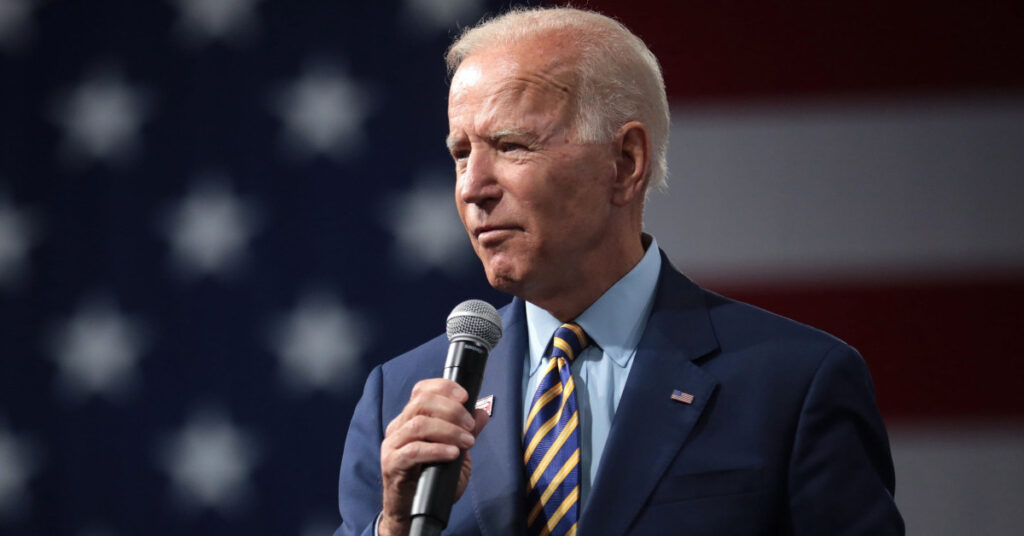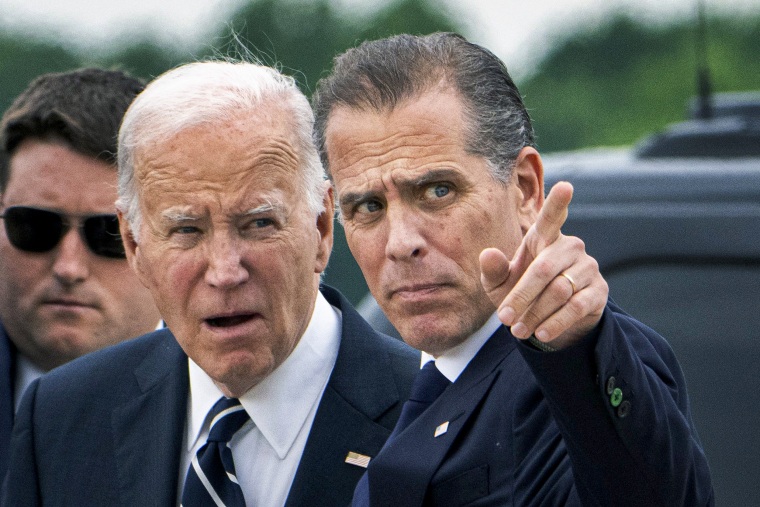Biden: No Commutation 4 Son’s Gun Case Conviction
Introduction
In a nation grappling with multifaceted challenges, from economic recovery to social justice, President Joe Biden’s administration has been under intense scrutiny. One issue that has garnered significant attention is the legal predicament of Hunter Biden, the President’s son. Hunter Biden’s legal troubles, particularly his gun case conviction, have raised questions about how the President will handle the situation. President Biden has firmly stated that there will be no commutation for his son’s conviction, underscoring his commitment to the rule of law and ethical governance.
Background
Hunter Biden, the second son of President Joe Biden, has faced a series of legal and personal challenges over the years. His struggles with addiction and subsequent legal issues have been well-documented and have often been used by political adversaries to criticize the Biden family. The gun case, in particular, has attracted widespread attention.
In October 2018, Hunter Biden purchased a handgun, a Colt Cobra .38 Special, at a Delaware gun shop. On the required federal background check form, Hunter answered “no” to the question of whether he was an unlawful user of or addicted to any controlled substances, despite his well-known struggles with addiction. This discrepancy led to an investigation and subsequent charges.
The Legal Proceedings
In 2023, Hunter Biden reached a plea agreement with federal prosecutors to avoid jail time by admitting to the illegal purchase of the firearm and agreeing to enter a diversion program. However, this agreement fell through due to various legal and political complications. Eventually, Hunter was convicted of the gun charge, a development that has since been a focal point for public discourse.
President Biden’s Stance
President Biden’s stance on the matter has been unequivocal. He has consistently stated that his son will not receive any special treatment due to his familial ties to the President. This position is significant for several reasons.
Upholding the Rule of Law
President Biden’s decision not to commute his son’s conviction is a strong statement about his commitment to the rule of law. In a political climate where allegations of nepotism and preferential treatment are rampant, this stance is intended to reinforce the principle that no one is above the law, not even the President’s family.
Ethical Governance
By refusing to intervene in his son’s legal case, President Biden aims to demonstrate ethical governance. This move is crucial in maintaining public trust, especially at a time when confidence in governmental institutions is wavering. By setting this precedent, Biden seeks to assure the American public that his administration is dedicated to fairness and justice.
Political Ramifications
The decision also carries significant political implications. Critics have often accused political figures of protecting their own, thereby eroding the integrity of public office. By standing firm on this issue, President Biden distances himself from such allegations, potentially bolstering his political standing.
Read More:Gen Z Voters Unveil Top 3 Power Picks for November
Personal Integrity
On a personal level, President Biden’s stance reflects his integrity and commitment to his values. Known for his deep sense of family, Biden’s refusal to commute his son’s sentence underscores the importance he places on accountability and personal responsibility.
Public Reaction
The public reaction to President Biden’s stance has been mixed. Some commend his adherence to the rule of law and ethical standards, viewing it as a necessary step to restore faith in government institutions. Others, however, argue that the situation is more complex and that Hunter Biden’s struggles with addiction should be taken into account more sympathetically.
Support for Biden’s Decision
Supporters of President Biden’s decision highlight the importance of impartiality in the justice system. They argue that by not intervening, Biden is setting a powerful example that reinforces the principle of equal justice under the law. This move is seen as a way to combat the perception of systemic inequality and favoritism in the American legal system.
Criticism of Biden’s Decision
Critics, however, contend that the decision lacks compassion, considering Hunter Biden’s history of addiction. They argue that the legal system should account for the nuances of addiction and mental health issues, and that punitive measures alone are not the solution. This perspective emphasizes the need for a more rehabilitative approach to justice, especially for those battling substance abuse.
Implications for the Biden Administration
The handling of Hunter Biden’s case has broader implications for the Biden administration. It serves as a litmus test for the administration’s commitment to justice and transparency.
Reinforcing Trust in Government
By maintaining a firm stance on this issue, the Biden administration seeks to reinforce trust in government institutions. This is particularly important in an era where skepticism and cynicism towards political leaders are prevalent. Demonstrating a commitment to justice, even when it involves personal sacrifice, can help rebuild public confidence.
Navigating Political Opposition
The case also presents a challenge in navigating political opposition. Critics of President Biden, particularly from the Republican Party, have used Hunter Biden’s legal troubles as a political weapon. By refusing to commute the sentence, President Biden removes a potential avenue for criticism, thereby strengthening his position against political adversaries.
Addressing the Opioid Crisis
Hunter Biden’s struggles with addiction highlight the broader issue of the opioid crisis in the United States. The Biden administration has been vocal about addressing this epidemic, and the handling of this case underscores the need for comprehensive policies that balance accountability with compassion and rehabilitation.
Ethical Leadership
President Biden’s decision is also a reflection of his broader approach to ethical leadership. Throughout his political career, Biden has emphasized the importance of integrity and ethical conduct. This decision is consistent with those values and serves as a benchmark for his administration’s handling of similar issues.
Conclusion
President Joe Biden’s decision not to commute his son Hunter Biden’s gun case conviction is a significant and multifaceted issue. It underscores his commitment to the rule of law, ethical governance, and personal integrity. The decision has elicited mixed reactions from the public, reflecting broader debates about justice, addiction, and ethical leadership.
By standing firm on this issue, President Biden aims to reinforce trust in government institutions and navigate political challenges effectively. This decision also highlights the complexities of addressing addiction within the legal framework and the need for a balanced approach to justice.
Ultimately, President Biden’s stance serves as a testament to his values and principles, setting a precedent for how similar issues should be handled in the future. It is a reminder that even in the face of personal challenges, the principles of justice and fairness must prevail.





